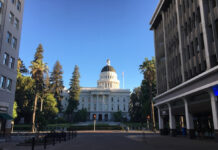Sports betting, igaming and online poker could earn Michigan revenue of $650m in year one of operations, bringing in $93.6m in tax revenue for the state, reports MichiganSharp.com.
Online casino and poker revenue will be taxed at 20-28 per cent from the state, using a tier system dependent on earnings, with projections stipulating the activities could earn as much as $250m in year-one, bringing in a possible $60m in tax revenue.
Gross revenue from sports betting, both online and retail, will be taxed at 8.4 per cent from the state, with Detroit’s three commercial casinos, MGM Grand Detroit, Greektown Casino and MotorCity Casino Hotel, to pay an additional 1.25 per cent city tax.
By comparison, New Jersey taxes land-based sports betting at 9.75 per cent and online sportsbooks at 13 per cent, Indiana’s online sports betting tax is levied at 9.5 per cent, and Pennsylvania taxes sports betting at 36 per cent.
MichiganSharp projects that the state could bring in as much as $400m in total first-year sports betting revenue, producing $33.6m in tax revenue for the state.
It is anticipated that the first mobile sports wagering and online casino platforms could launch within the state during the latter stage of the year.
“Mobile wagering should be the major revenue driver for Michigan’s sports betting market,” said Geoff Fisk, analyst for MichiganSharp.com.
“The convenience and ease of access of online sports betting opens up a whole new world of opportunities for both bettors and sportsbook operators.”
All 26 of Michigan’s retail casinos can apply for sports betting and internet gaming licenses through the Michigan Gaming Control Board, after state lawmakers passed House Bill 4916 in December 2019.
“All of the pieces are in place for Michigan to become a major hub for sports betting and online gambling,” added Fisk. “Virtually all of the state’s casinos should want a piece of the new market, especially with the attractive tax rates.”











